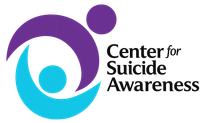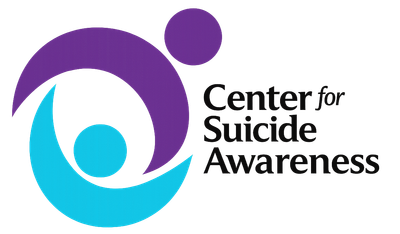A Community United for Suicide Awareness & Prevention
The Center for Suicide Awareness brings help, hope, and resources to families and individuals in our communities through programs that reach others where they are at and when they need it most.
Text HOPELINE™
to 741741
Hope and Help is Just a Text Away™
Help, Hope, & Resources
Support looks different for everyone.
Whether you’re here for yourself, someone you care about, or your entire community, we’ve got tools that meet the moment. From emotional support to creative programs and practical training, we’re all about helping people help each other—before, during, and after a crisis.
Find Help
Whether you’re in crisis or just had a terrible day—help is one text away. We’re here before, during & after the worst.
Training & Outreach
From classrooms to game servers, we train communities to recognize warning signs & respond with confidence.
Our Programs
From challenge coins to Coping Critters™, we deliver diverse, trademarked programs that meet people where they are.
Help Is Just A Text Away
Remember you are important and that you matter
HOPELINE, by the Center for Suicide Awareness, is a text-in (versus voice call-in) free service for help and hope. HOPELINE is a free Emotional Support Text Line. It is available 24/7 and is free. Hope and Help is just a text away!
Why We Do This Work
(Spoiler: it’s personal)
We started in 2010 with a mission to change how the world talks about—and acts on—suicide prevention. What began with one person’s vision has grown into a nationwide movement powered by heart, hustle, and a whole lot of lived experience. We’re grassroots and go-getters. We build programs that meet people where they are and speak human, not clinical.
If You Only Knew
The documentary that started conversations worldwide.
Our award-winning documentary, If You Only Knew What You Left Behind, isn’t just a film—it’s a conversation starter, a training tool, and for many, a gut-punch of recognition. Built from real stories of loss and hope, this project has been used around the world (yes, even by psychiatrists in Australia) to change how people think about suicide, grief, and prevention.
It’s emotional. It’s real. And it’s part of our mission to break the silence.
Why Suicide Prevention Matters
Hard questions. Honest answers.
Real reasons to care.
Is suicide really that common?
Yes. According to the World Health Organization, nearly one million people die by suicide every year. That’s roughly one death every 40 seconds. In the United States, it’s a leading cause of death for young people—and it affects every age, race, gender, and community. Suicide isn’t rare. But that means prevention has never mattered more.
Who is most at risk?
Honestly? Anyone. Suicide doesn’t discriminate. But certain groups—including veterans, first responders, LGBTQ+ youth, and rural communities—face higher risks due to stress, stigma, isolation, or lack of resources. That’s why we focus on proactive, inclusive programs that meet people where they are.
Why should workplaces care?
Because mental health is a workplace issue. The average financial impact of a single suicide in the workplace is estimated at over $1.1 million—but the emotional toll on teams and families is impossible to measure. Suicide prevention training isn’t just compassionate. It’s smart business.
Isn’t talking about suicide dangerous?
Nope. That’s a common myth. Asking someone if they’re thinking about suicide does not “put the idea in their head.” In fact, research shows it can reduce risk by creating space for someone to open up and feel heard. Silence is far more dangerous than the conversation.
What does it mean to be “suicidal”?
It’s not one thing. Suicidal thinking exists on a spectrum—from passing thoughts to serious plans. At any given moment, 1 in 25 people is thinking about suicide to some degree. That’s why early intervention and everyday conversations are key.
What should I do if I’m worried about someone?
Start by listening—without judgment, without trying to fix. Ask directly if they’re thinking about suicide. Let them know you’re there. And then connect them to help (yes, we can help with that). You don’t need to be a professional to make a difference.
What if I’m the one struggling?
Then first, please know this: you’re not alone, and it’s okay to ask for help. You don’t have to wait for things to get worse. You can text HOPELINE to 741741 right now for free, confidential support from trained counselors. No scripts, no shame—just someone who’s ready to listen.

